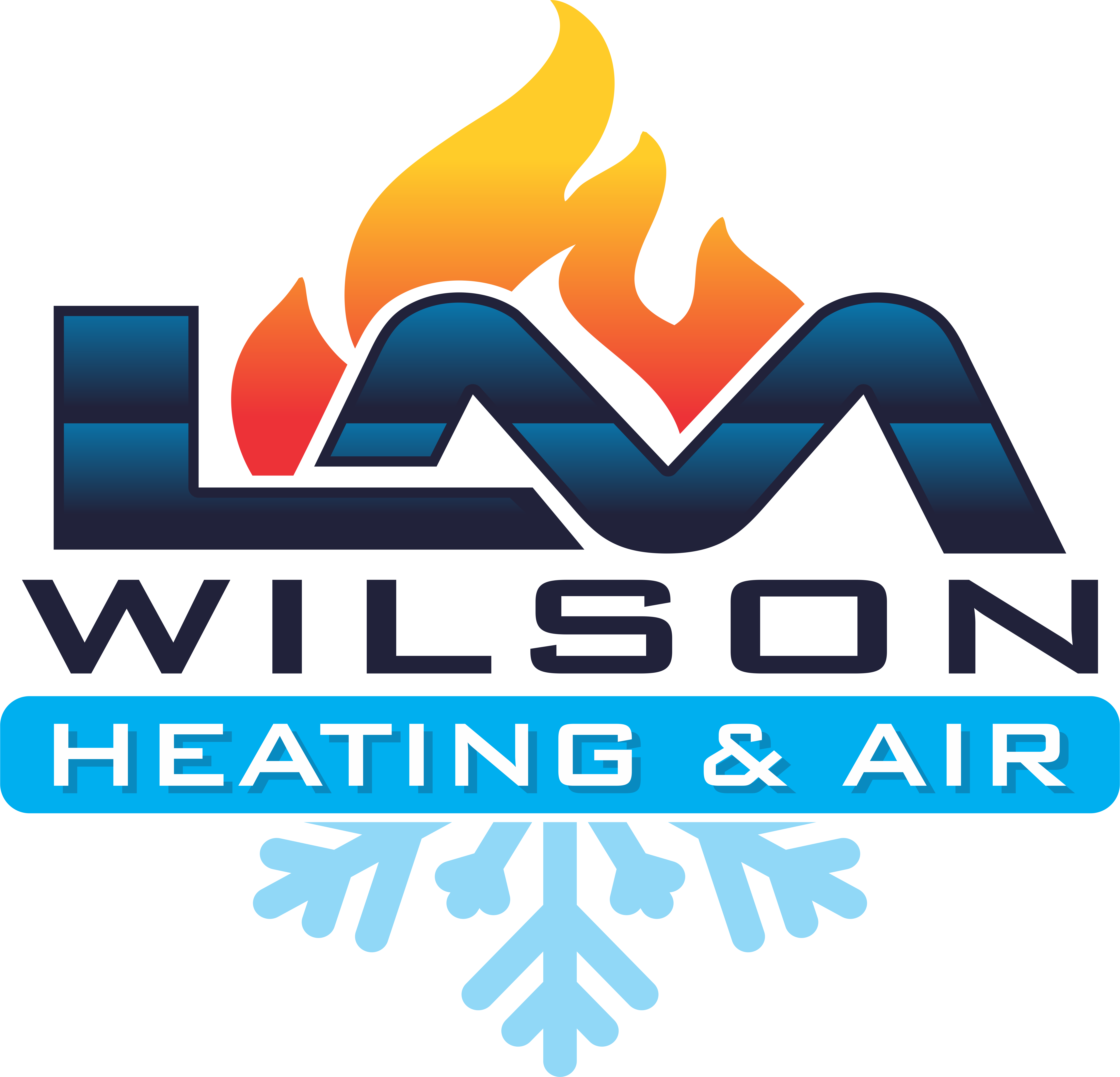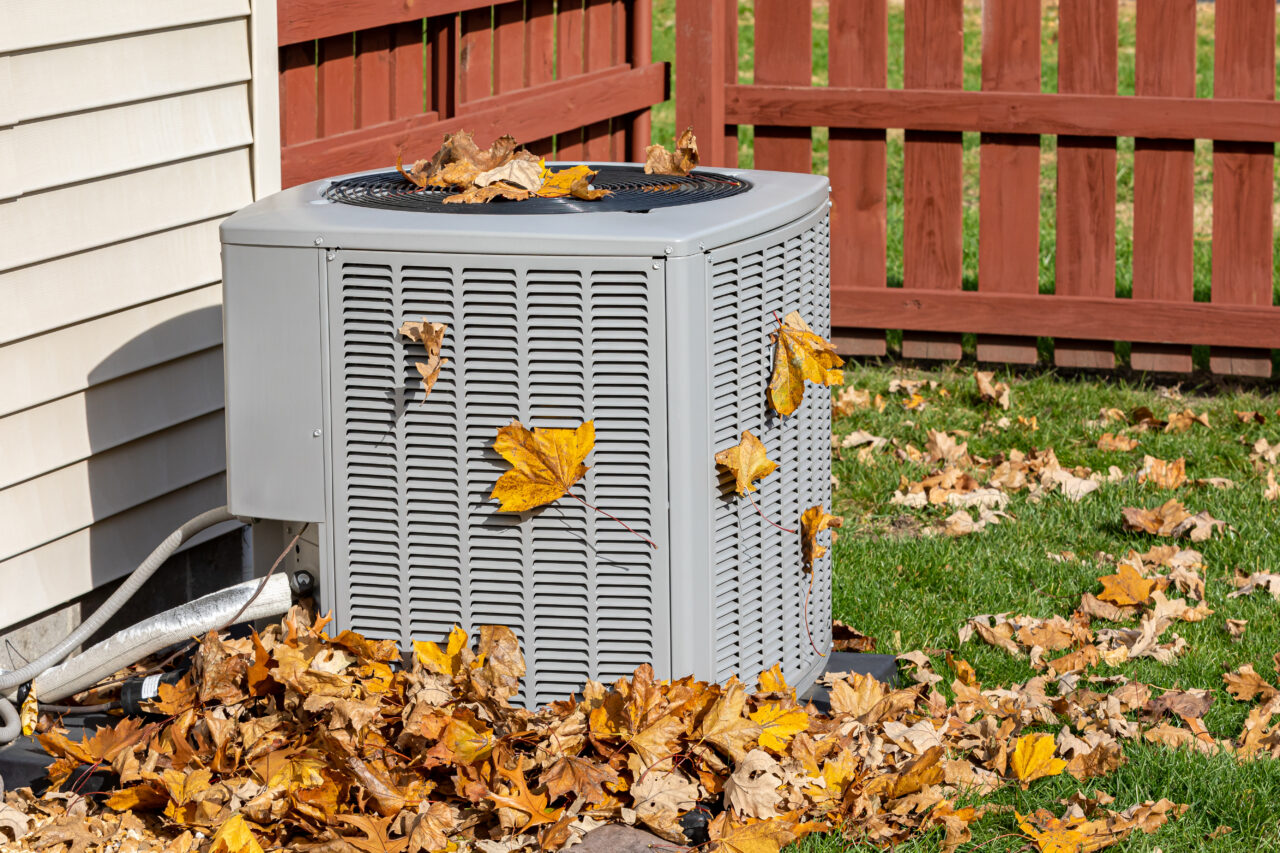As the vibrant colors of autumn arrive in North Carolina (especially around Burlington and Alamance/Orange County), it’s a signal that cooler weather is on its way. With the transition from summer to fall and, eventually, winter, it’s crucial to ensure that your HVAC (Heating, Ventilation, and Air Conditioning) system is well-prepared to keep your home comfortable throughout the colder months. In this blog, we’ll discuss the top five things you can do to get your HVAC system ready for fall and winter in North Carolina, where the weather can be quite unpredictable.
Schedule a Professional HVAC Inspection and Maintenance
One of the most critical steps in preparing your HVAC system for the fall and winter seasons is to schedule a professional inspection and maintenance service. A licensed HVAC technician can thoroughly assess your system, identify any issues, and perform necessary maintenance tasks to ensure it operates efficiently and safely.
Here’s what you can expect from a professional HVAC inspection and maintenance service:
Cleaning and Tune-Up: The technician will clean essential components of your HVAC system, including the condenser and evaporator coils, blower motor, and air filters. Cleaning helps improve airflow and efficiency.
Thermostat Calibration: The technician will calibrate your thermostat to ensure it accurately reads and maintains the desired temperature in your home.
Inspecting Electrical Connections: All electrical connections will be inspected and tightened as needed to prevent potential issues or safety hazards.
Checking Refrigerant Levels: For heat pumps and air conditioning systems, the technician will check refrigerant levels to ensure optimal performance.
Inspecting and Lubricating Moving Parts: Lubrication of moving parts such as motors and bearings helps reduce friction and wear.
Testing Safety Controls: Safety controls and switches will be tested to ensure they function correctly.
Air Duct Inspection: Ductwork will be inspected for leaks or damage that can lead to energy waste.
Carbon Monoxide Testing: For gas furnaces, a crucial safety step is to test for carbon monoxide leaks to ensure your family’s safety.
By having your HVAC system professionally inspected and maintained, you can catch and address potential problems before they worsen, ensuring that your system operates efficiently and safely throughout the fall and winter.
Change or Clean Air Filters
Air filters are an often-overlooked component of HVAC systems, but they play a crucial role in maintaining indoor air quality and system efficiency. Over time, air filters become clogged with dust, dirt, and allergens, hindering airflow and forcing your HVAC system to work harder.
Here’s what you should do:
Check Your Filter: Start by checking your air filter. If it’s visibly dirty or hasn’t been replaced or cleaned in a while, it’s time for a change.
Select the Right Filter: When replacing the filter, ensure you choose the correct type and size for your HVAC system. Filters have different ratings, with some designed to capture finer particles and allergens.
Regular Replacement: Make it a habit to check and replace or clean your air filter every one to three months, depending on factors such as filter type and household conditions.
A clean air filter allows for proper airflow, reducing strain on your HVAC system, and helps maintain good indoor air quality by trapping airborne particles. At LM Wilson, we offer premium, professional-grade filters for your use at home.
Seal Leaks in Your Home
A well-sealed home is essential for energy efficiency during the colder months. Leaks in your home’s envelope, such as gaps around doors and windows, can lead to heat loss and increased energy bills. To ensure your HVAC system doesn’t have to work harder than necessary, it’s vital to seal these leaks.
Here’s what you can do:
Check for Drafts: On a windy day, walk around your home and feel for drafts around windows, doors, and other openings. These drafts indicate potential air leaks.
Seal Gaps: Use weatherstripping or caulking to seal gaps and cracks around windows and doors. Install door sweeps on exterior doors to prevent drafts from entering.
Inspect Attic and Basement: Inspect your attic and basement for any gaps or openings that may allow cold air to infiltrate. Seal any gaps in these areas as well.
Check Ductwork: Inspect your HVAC ductwork for leaks or loose connections. Sealing and insulating ducts can significantly improve system efficiency.
By sealing leaks in your home’s envelope, you’ll not only keep warm air inside during the colder months but also save on energy costs.
Program Your Thermostat
A programmable thermostat can be your ally in optimizing your HVAC system’s efficiency during the fall and winter. With a programmable thermostat, you can set different temperatures for various times of the day and week, ensuring your system runs when needed and conserves energy when it’s not.
Here are some tips for programming your thermostat:
Set Lower Temperatures at Night: Lowering the temperature at night while you sleep can help you save on heating costs. A cooler bedroom can even improve sleep quality.
Use Energy-Saving Modes: Many thermostats have energy-saving modes, such as “Away” or “Vacation.” Utilize these modes when you’re not at home for extended periods.
Avoid Constant Adjustments: Constantly adjusting the thermostat can make your HVAC system work harder and less efficiently. Set a comfortable temperature and leave it there.
Consider a Smart Thermostat: Smart thermostats allow you to control your HVAC system remotely through a smartphone app, making it easier to adjust settings as needed.
By programming your thermostat thoughtfully, you can maintain comfort while reducing energy consumption.
Ensure Proper Ventilation
Good ventilation is essential for maintaining indoor air quality and ensuring your HVAC system operates efficiently. During the fall and winter, homes tend to be tightly sealed to keep the cold out. However, this can lead to poor indoor air quality if not properly ventilated.
Here’s what you can do to ensure proper ventilation:
Use Exhaust Fans: Use exhaust fans in the kitchen and bathroom to remove excess moisture and pollutants.
Open Windows Strategically: On milder days, open windows briefly to allow fresh air to circulate through your home.
Invest in an Air Purifier: Consider using an air purifier to remove allergens and pollutants from indoor air.
Regular Cleaning: Dust and vacuum regularly to reduce indoor air pollutants. You may also opt for professional air duct cleaning.
Check for Blockages: Ensure that vents and registers are not blocked by furniture or other objects, as this can impede airflow.
Proper ventilation ensures that your HVAC system can effectively distribute warm air while maintaining good indoor air quality.
Preparing your HVAC system for the fall and winter seasons in North Carolina is essential for maintaining comfort, energy efficiency, and safety. By following these five steps – scheduling professional maintenance, changing or cleaning air filters, sealing leaks, programming your thermostat, and ensuring proper ventilation – you can ensure that your HVAC system operates optimally when you need it most. Taking these proactive measures will not only keep you cozy during the colder months but also help you save on energy bills and extend the lifespan of your HVAC equipment. If you have any questions, feel free to reach out to us at (336) 663-1370 or contact us here.


